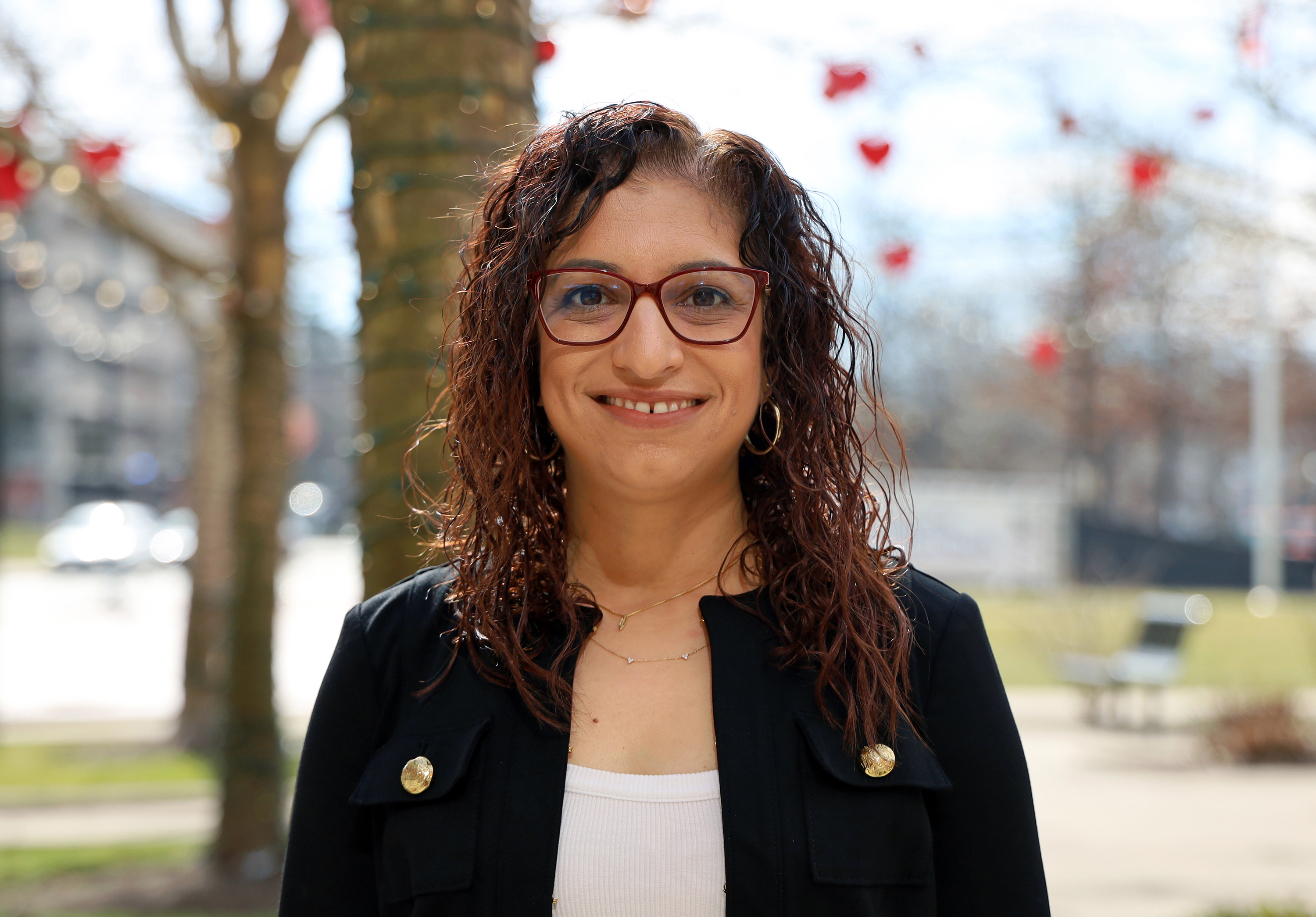Public Health Buckeyes: Farah Brink
Clinical translational science program supports pediatrician’s pivot to research
By Kristen Mitchell

Meet Farah Brink, a student in the MPH-clinical translational science program focused on children’s health and well-being. She is a pediatrician at Nationwide Children’s Hospital and assistant professor of clinical pediatrics at The Ohio State University College of Medicine.
Question and Answer
Why did you decide to focus on child abuse in your work as a pediatrician and researcher?
I have always been passionate about advocating for the health of children. In medical school, I quickly realized that becoming a pediatrician was the obvious choice for me. Following residency, I worked…at the Cleveland Clinic Children’s Hospital where I had the opportunity to help direct our child protection team. It was that experience that helped me recognize my true calling of caring for patients who have experienced child maltreatment.
Throughout my career, I have been actively involved in many research projects related to various child abuse pediatric topics. I have recently pivoted to focusing more on research, which includes conducting epidemiologic studies of large administrative datasets, using machine learning for identification of child physical abuse, as well as mentoring trainees in research. I have never felt as rewarded in my career as I do now!
Your current research uses machine learning to examine medical imaging and more accurately identify injuries and estimate how much time has passed since they occurred. How will the results of this project help children?
Fractures are the most common manifestation of physical abuse after soft tissue injuries like bruising. The incidence of abusive fractures has been shown to vary with age, with children less than two years and particularly less than 12 months of age being at highest risk. Estimating time-since-injury, which is vital for investigative agencies to confirm a clear timeline of traumatic events, is often difficult as current dogma for age estimates can be imprecise. Leveraging the power of machine learning to estimate time-since-injury more accurately can ultimately increase confidence in stating when a fracture occurred and, in turn, improve the ability of child protective agencies to protect a child from further violence.
How do the skills and knowledge you are gaining in the MPH program support your work?
I am gaining so much through the MPH program. Certainly, getting a better understanding of study design and biostatistics is crucial in supporting my future work. It has also been incredibly eye-opening to learn more about public health programs and how they impact health at the population level versus just the individual level, which is what I am used to focusing on as a physician.
What do you enjoy most about the MPH program?
This may sound cliché, but I am enjoying everything about the MPH program! I especially enjoy the energy of just being on a college campus again and learning from other MPH students about their research interests and career goals.
What other public health topics are you passionate about?
I am passionate about child health topics in general, but one of the most important public health issues to me is disparities in health care access and outcomes within marginalized populations. Also, I wouldn’t be a pediatrician if I didn’t strongly believe in vaccinations and the huge positive impact it has had on the health and longevity of the population. In addition, I am a strong advocate for the reproductive rights of adolescents.
What advice would you give to future clinical translational science students?
If you are considering the program at all, do it! The knowledge and skills you will attain are vital to ultimately designing high-quality studies intended to improve patient care and outcomes.
My other piece of advice is to get to know your advisors and professors. They are there to help you and the more they know about your career goals and what you hope to accomplish through the program, the better they can support you. Finally, make sure to make time for self-care during all the chaos of managing classes with everything else. By giving yourself lots of grace and making sure to do something for yourself daily, you will be a calmer, healthier and more focused and productive person.
About The Ohio State University College of Public Health
The Ohio State University College of Public Health is a leader in educating students, creating new knowledge through research, and improving the livelihoods and well-being of people in Ohio and beyond. The College's divisions include biostatistics, environmental health sciences, epidemiology, health behavior and health promotion, and health services management and policy. It is ranked 22nd among all colleges and programs of public health in the nation, and first in Ohio, by U.S. News and World Report. Its specialty programs are also considered among the best in the country. The MHA program is ranked 5th and the health policy and management specialty is ranked 21st.